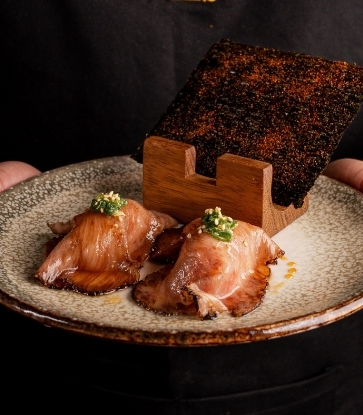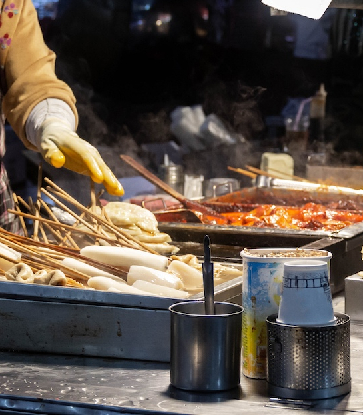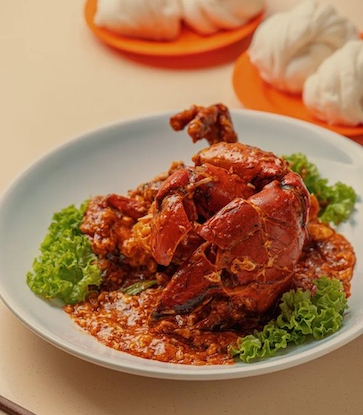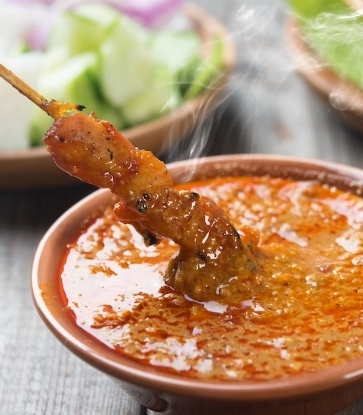Restaurants can be forces of good when they do more than satisfying the stomach and actually make a difference in local farming. From humble family restaurants to cafes and high-end spaces, the wave of using fresh, local produce is not a trend in Dubai, but an industry movement that is here to stay.
The increased global awareness on the impact of cooking and eating habits on the environment has had a domino effect in recent years. Chefs are progressively using their culinary skills to execute and promote sustainable steps, resulting in more traditional and hydroponic farms to sprout all across the UAE. This not only highlights the bounty of the region in innovative and appetising ways, but also gives restaurants a steady stream of fresh and organic ingredients that are essentially better for the planet and people.
Dubai’s dining scene has completely transformed in the past few years, with a fierce focus on eco-friendly practices to trace eco-footprints. From diners choosing restaurants that support local farmers, supermarkets building indoor hydroponic farms for the freshest leafy greens, and product barcodes that reflect their journey from origin to shelf, it’s evident that Dubai is going ‘growcal’ (grown locally).
To delve deeper into the sustainable state of mind, we reached out to chefs from MICHELIN restaurants in Dubai to understand their initiatives that champion local produce and drive sustainable farming practices, while also elevating the city's dining scene.
With a commitment to nose-to-tail dining, MICHELIN Green Star restaurant LOWE has become the go-to for delicious dishes that are good for the planet. The stylish restaurant practices sustainable gastronomy that showcases seasonal produce cooked naturally by fire.
The team at LOWE ensures that every part of their product is used to avoid waste, and all organic leftovers - including coffee grinds - are used in recipes or composted to nourish their garden. They work closely with local farmers and suppliers, which allows them to have an immersed understanding of the products they use and support the local community, while also reducing their carbon footprint. The benefits from sustainable sourcing are then passed on to guests, serving them fresh, seasonal produce with full transparency in the supply chain.
Sustainability is not limited to their selection of produce but transcends to who they forge relations with. LOWE chooses supply partners who also practise eco-friendly methods, including recyclable or biodegradable packaging and banning single-use plastic.
As an aspiring LOHAS (Lifestyle of Health and Sustainability) company, Bib Gourmand restaurant Teible takes pride in being a farm-to-table dining concept with an aim to preserve the well-being of both people and the environment.
The sustainable dining concept sources over 95 per cent of its ingredients from within the UAE, which reduces the restaurant’s carbon footprint dramatically. A majority of fruit and vegetables are supplied by Greenheart Organic Farms, meat products, such as beef, lamb and camel are sourced from Home Meat Farm, while specific local ingredients such as lemon, verbena, herbs, and mushrooms are collected from My Farm and Kinoko Farm.
All suppliers are heavily vetted to verify that they have shared eco-conscious values and do not use any chemicals in their products, abuse, pollute, or poison soil, and respect people, animals, and nature by using natural cultivation methods. Taking small steps that go the extra mile, Teible believes in establishing close relations with the suppliers and farmers they work with, and the team does this by paying on-site visits to the farms for a deeper understanding of the availability and seasonality of homegrown produce.
Sustainability transcends from beyond just the menu. The restaurant interiors have implemented subtle, earth-friendly nuances to ensure materials used throughout the venue work to preserve the natural environment. Guests will see Teible’s eco-friendly ceiling made from superfine wood wool sourced from an FSC-certified forest, while old countertops have been replaced with date seed-based materials, and new walls have been built using discarded palm trees from Abu Dhabi.
It is evident Teible is truly an all-round ambassador of living sustainably and exemplifies the balance in which business and environment can co-exist through conscious choices.
Sustainable sourcing has emerged as one of the most popular food trends of 2023 in the United Arab Emirates, and MICHELIN-selected restaurant Brasserie Boulud is at the forefront of this movement. With guidance from Executive Chef, Chef Russell Impiazzi, the restaurant has prioritised quality and sustainability in creating its menu. Since opening doors over two years ago, the MICHELIN chef dining concept has established and nurtured strong relationships with suppliers like Greenheart Organic Farms and Fresh On Table, which provide locally grown vegetables, salads, and herbs. The restaurant also works with key protein suppliers who spotlight products without routine antibiotics and growth hormones.
Sourcing locally where possible has become a natural response and even trickled into other facets of life for the Brasserie Boulud team. Chef de Cuisine, Nicholas Lemoyne, actively implements and demonstrates sustainable steps to lead by example for his team, stating that "this trend will become the normal and will be followed for as long as I am a chef". He also emphasises on the importance of educating young chefs on thinking sustainably, noting that more and more hotels and restaurants are adopting this approach, and that customers are starting to recognise and applaud these practices.
Chef Lemoyne hopes that the addition of MICHELIN Guide's Green Star in 2020 will inspire more chefs and restaurants to push towards sustainability, ultimately making a significant, global impact in the industry.






















